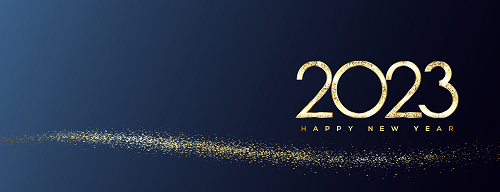How do you make new habits and resolutions stick?
The New Year is a popular time to “Change for the Better”. Around the world people will be launching into January with fresh resolve and determination to pursue better habits. Hordes of enthusiastic resolution-ers will sign up for new gym memberships and diets and take up new hobbies. But, despite the best intentions, by the second week of February, 80 percent of resolutions will have not been transformed into more sustainable habits.
That’s because it takes more than just resolve to form a new habit and, unfortunately, it can take more than six weeks. The 1950’s based theory that it takes just 21 days to form a new habit has been blown apart. More modern and popular theories suggest it takes a minimum of two months and up to 250 days for a new behavior to become automatic1.
With Net Zero targets looming ever larger, water and energy companies are under pressure to help their customers reduce consumption, eliminate waste and take more sustainable actions. That requires customers to learn new habits and be motivated/reminded to stick to them.
Plenty of good habits should be encouraged – such as taking shorter showers, turning the thermostat down, fixing leaky loos, turning appliances off standby, only filling the kettle with the amount of water required, improving home standards – and so on.
How can you plan to form a new habit?
According to our expert Behavioral Science advisor, Professor Paul Dolan, author of the bestselling book “Happiness by Design”, there are three stages to forming a new habit – Decide, Design and Do.
- Decide – First you must decide what new habit you want to form
- Design – You must then create bite sized goals that are achievable and that you can accommodate in your life. You must also create a strategy for remembering them – such as setting reminders.
- Do – The final step is to take the required action.
We are here to help you advise your customers on how they can reduce their consumption, stop “bad” habits, and more importantly, deliver regular reminders designed to help them sustain their new behaviors and habits.
Advizzo’s solutions and customer engagement platform use behaviorall science based techniques using ‘nudging’ and other techniques. The nudge theory first came to the world’s attention in 2008, when Richard Thaler and Cass Sunstein’s book, ‘Nudge’, proposed the theory that people are often unable to make good decisions when they lack experience, context, knowledge, or are overcome with inertia. For instance, people are more likely to put their seatbelt on if they hear an alarm. The theory suggests that we often allow our autonomous nervous system to make decisions on our behalf, bypassing the conscious thinking process. The solution often involves guiding (nudging) people in the right direction – towards the more beneficial option.
A growing volume of research reveals that energy and water consumption behavior is not always rational and can benefit from nudges designed to encourage households to reduce consumption.
A nudge in the right direction
Here’s how we can help your customers create new and sustainable habits to reduce their consumption.
Help people ‘decide’
We help you use data science to ascertain and understand what messages are most appropriate and will have the most impact on an individual household. That way we can be sure that when suggesting ways to reduce consumption by adopting new habits – we can be sure that we are targeting the right customer with the right messages.
Help people ‘design’
We help you design personalized action plans for each customer and then nudge them with regular communications via appropriate channels – to remind them what they need to do and why they’re doing it. Our neighbor comparison reports are proving to be effective at nudging customers towards taking actions in order to be more efficient, like other similar households.
Help people ‘do’
Our recommended communications provide motivation over a prolonged period to keep customers on track. We also measure and track results to ensure the effectiveness of our campaigns – making sure that the customer is made aware of the gains they have achieved from the actions they have taken. This helps suppliers correlate how action translates into consumption over time.
Consumers have a growing appetite to reduce consumption and help meet the world’s Net Zero targets. A report by Nesta found that 85% 2 of consumers agree that climate change is one of the most important issues that needs addressing. However it also found that many consumers are not clear on what measures they need to be taking and are looking to their suppliers to help them understand what they need to do.
How will you help your customers towards reducing their consumption more effectively? Do you believe your organisation alone can help them change their behaviors and habits in a sustainable way? Numerous utilities globally use Advizzo solutions. We’d love to help you. Get in touch or book a demo and let’s bring some New Year’s hope and innovation to the climate crisis.
Source ref
1https://jamesclear.com/new-habit
2https://www.nesta.org.uk/report/decarbonising-homes-consumer-attitudes/
